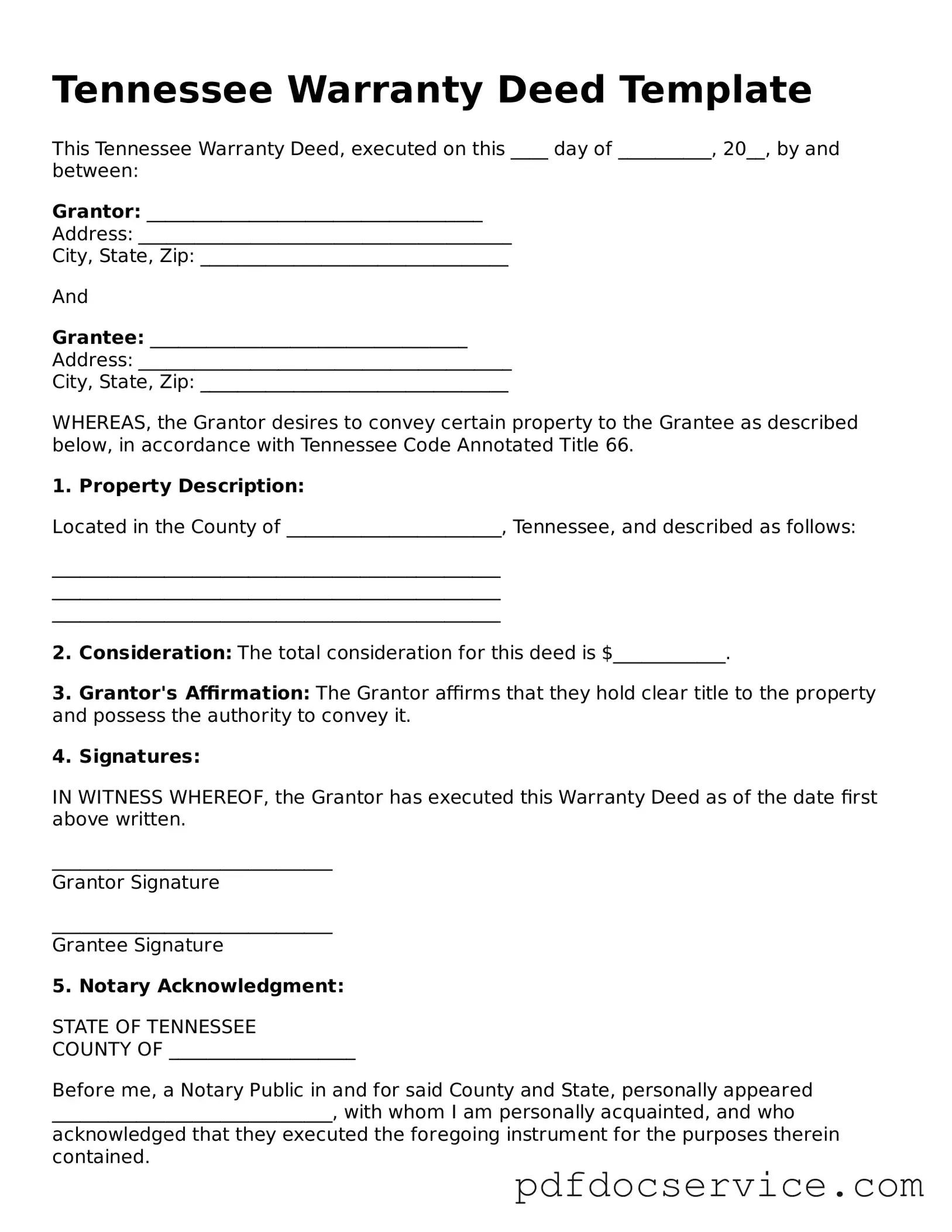A Tennessee Deed form is a legal document used to transfer ownership of real property from one party to another within the state of Tennessee. This form serves as a record of the transaction and must be filed with the local county register of deeds to be effective. The deed outlines essential details, including the names of the grantor (seller) and grantee (buyer), a description of the property, and any conditions of the transfer.
What types of deeds are available in Tennessee?
Tennessee recognizes several types of deeds, each serving different purposes:
-
Warranty Deed:
Offers the highest level of protection to the grantee, guaranteeing that the grantor holds clear title to the property.
-
Quitclaim Deed:
Transfers any interest the grantor may have in the property without guaranteeing clear title. This is often used among family members or in divorce settlements.
-
Special Warranty Deed:
Similar to a warranty deed but limits the grantor's liability to the period they owned the property.
To complete a Tennessee Deed form, follow these steps:
-
Identify the parties involved: Ensure you have the full names and addresses of both the grantor and grantee.
-
Provide a legal description of the property: This should be as detailed as possible, including parcel number and boundaries.
-
Specify the consideration: Indicate the amount paid for the property, which can be monetary or other forms of value.
-
Sign and date the document: The grantor must sign the deed in the presence of a notary public.
Is notarization required for a Tennessee Deed?
Yes, notarization is required for a Tennessee Deed. The grantor must sign the deed in front of a notary public, who will then affix their seal. This step is crucial as it verifies the identity of the signer and ensures the document's authenticity.
Where do I file a Tennessee Deed?
A Tennessee Deed must be filed with the local county register of deeds in the county where the property is located. Each county has its own office, and it is essential to check the specific requirements and fees associated with filing in that jurisdiction.
Are there any fees associated with filing a deed in Tennessee?
Yes, there are fees associated with filing a deed in Tennessee. These fees vary by county and are typically based on the number of pages in the document. Additionally, there may be transfer taxes imposed depending on the property's value. It is advisable to contact the local register of deeds for the exact fee schedule.
What happens after I file a Tennessee Deed?
Once a Tennessee Deed is filed, it becomes a matter of public record. This means that anyone can access the information contained in the deed. The grantee should receive a copy of the filed deed as proof of ownership. It is also important for the new owner to update any relevant property records, such as tax assessments, to reflect the change in ownership.
Can I revoke a Tennessee Deed?
Revoking a Tennessee Deed is generally not straightforward. Once a deed is executed and recorded, it typically cannot be undone unilaterally. However, a grantor may file a new deed to convey the property back or to another party. In some cases, if the deed was executed under duress or fraud, legal action may be taken to contest its validity. Consulting with a legal expert is recommended for specific situations.

